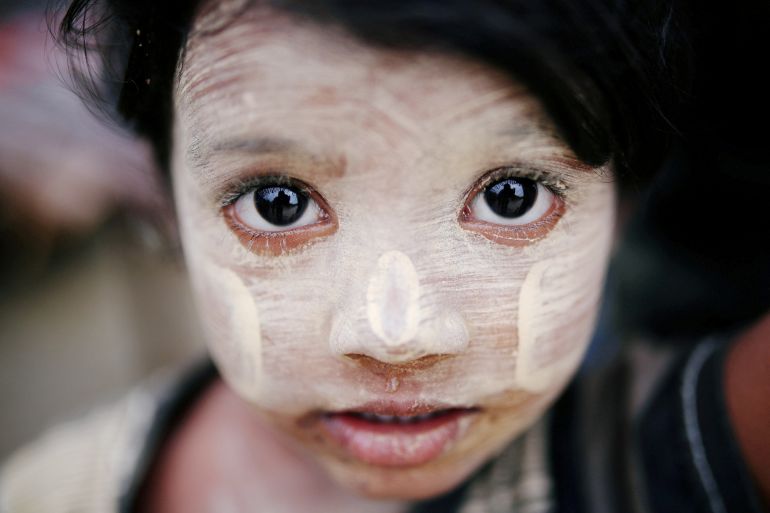Myanmar genocide case to go ahead after ICJ rejects objections
Judges at the UN’s top court dismiss objections to a case alleging genocide against the Rohingya.

Judges at the United Nations’ highest court have dismissed preliminary objections by Myanmar to a case alleging the Southeast Asian nation is responsible for genocide against the mostly Muslim Rohingya minority.
The decision on Friday clears the way for the highly charged case, brought by The Gambia, to go ahead at the International Court of Justice (ICJ), a process that could take years.
Keep reading
list of 4 itemsMyanmar accused of war crimes over ‘depraved use’ of landmines
Myanmar leader shops for support, weapons in Moscow
Myanmar refugees in Thailand endure resettlement wait
Myanmar, now ruled by the military, had argued that The Gambia, which brought the suit, had no standing to do so at the ICJ.
But presiding Judge Joan Donoghue said the court found that all members of the 1948 Genocide Convention can and are obliged to act to prevent genocide, and it has jurisdiction in the case.
“Gambia, as a state party to the Genocide convention, has standing,” she said, reading a summary of the ruling. The court will now proceed to hearing the merits of the case.
The Burmese Rohingya Organisation UK (BROUK) welcomed the court’s decision.
“This decision is a great moment for justice for Rohingya and for all people of Burma. This ruling shows that there is a possibility to challenge to the military’s impunity,” Tun Khin, BROUK president, said in a statement. “The objections raised by Burma were nothing but a blatant delaying tactic, and we are pleased that this landmark genocide trial can now finally begin in earnest.”
While the court’s decisions are binding and countries generally follow them, it has no way of enforcing them.
In a provisional decision two years ago, the court ordered Myanmar to protect the Rohingya from genocide, a legal victory that established their right under international law as a protected minority.
The South East Asian nation was then represented by elected leader and Nobel laureate Aung San Suu Kyi, who was removed by the military in a coup in February 2021.
‘Speed up justice’
A small group of pro-Rohingya protesters gathered outside the court’s headquarters, the Peace Palace, before the decision with a banner reading: “Speed up delivering justice to Rohingya. The genocide survivors can’t wait for generations.”
One protester stamped on a large photograph of Myanmar’s military chief and coup leader, Senior General Min Aung Hlaing.
“Since it seized power in a coup last February, the military junta’s violence and criminality has only deepened,” Akila Radhakrishnan, president of the Global Justice Center, said in a statement.
“Though we’ve seen strong condemnation and some bare accountability measures from the international community, the people of Myanmar continue to suffer under this brutal regime. And though this case is just one of many roads toward justice, its resolution would be a major step towards justice and a sustainable, democratic Myanmar.”
Canada and the Netherlands have given their support to The Gambia’s case at the ICJ and rights groups say more countries should follow their lead.
“Jurisdiction in this case is settled,” Fortify Rights Chief Executive Officer Matthew Smith said in a statement. “The international community should immediately get behind The Gambia in this case and support other efforts across mechanisms to hold the Myanmar military to account for its horrific crimes against the people of Myanmar.”
Myanmar’s military launched what it called a clearance campaign in Rakhine state in 2017 in the aftermath of an attack by a Rohingya armed group. More than 700,000 Rohingya fled into neighbouring Bangladesh and Myanmar security forces have been accused of mass rapes, killings and torching thousands of Rohingya homes.
Some Rohingya remained in Rakhine despite the crackdown.
More than 100,000 live in ‘displacement’ camps that Human Rights Watch has described as “squalid and abusive” with “severe limitations” on their movement, education and healthcare. Amnesty has described the situation of the Rohinyga in Rakhine, who are not allowed to leave the state, as apartheid.
US Secretary of State Antony Blinken declared in March that the Myanmar military’s violence against the Rohingya amounted to genocide.
The ICJ rules on disputes between states and is not linked to the International Criminal Court, also based in The Hague, which holds individuals accountable for atrocities.
Prosecutors at the ICC are investigating alleged crimes committed against the Rohingya.
BROUK has also filed a genocide case in a court in Argentina under the principle of universal jurisdiction, which allows courts to prosecute alleged breaches of international law committed anywhere in the world.